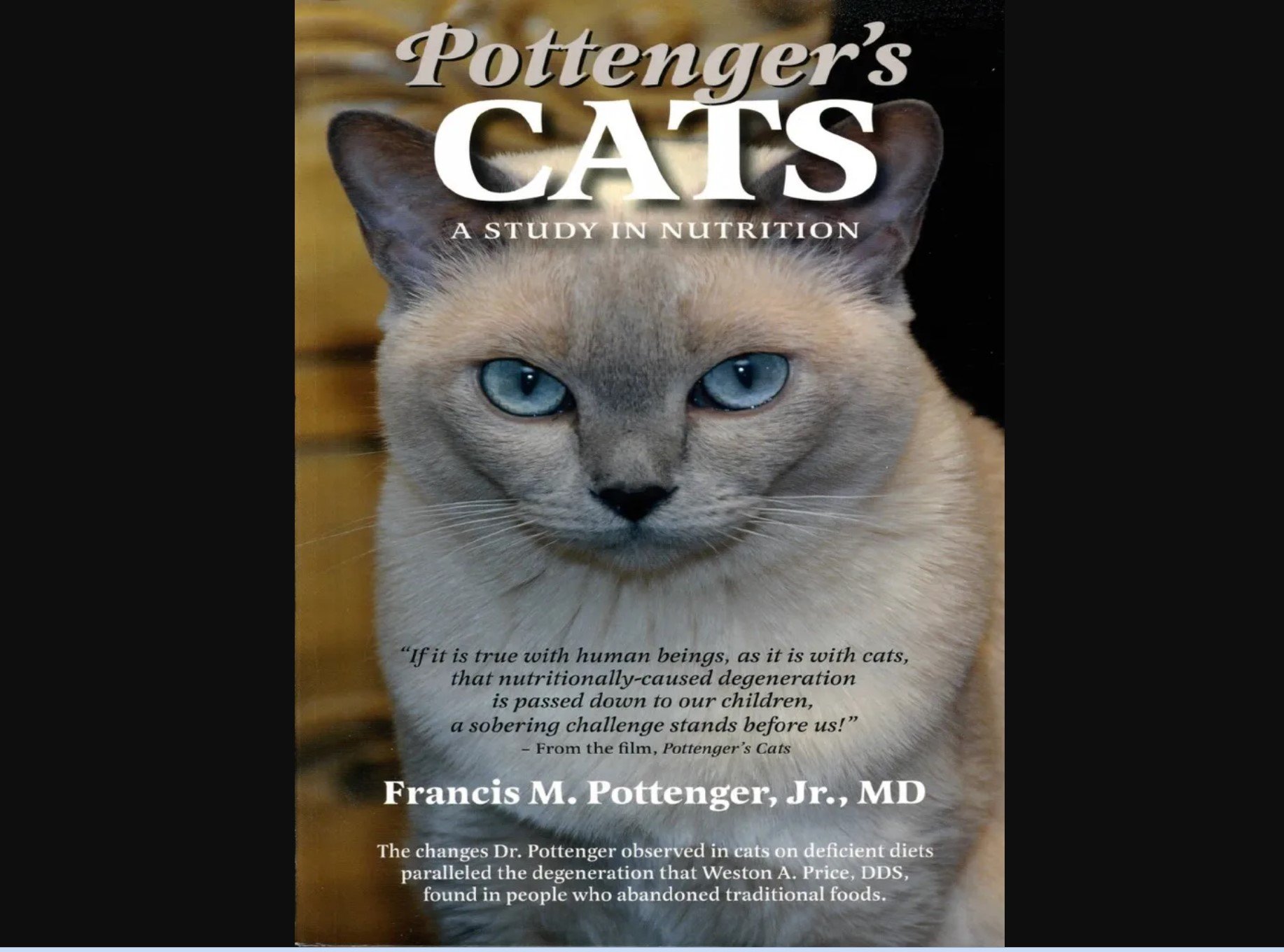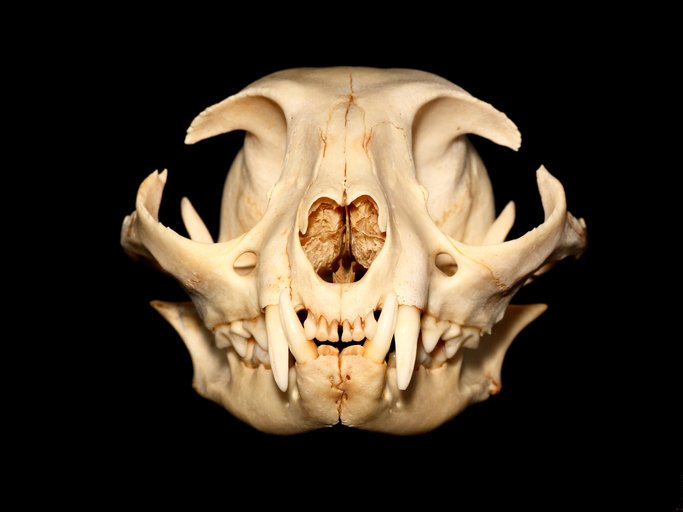The Intriguing World of Pottenger's Cats
Francis Pottenger, Jr., MD, is one of those names we all should know. Sadly, few do. He experimented with cats for ten years, from 1932 to 1942. His research and findings are now known as the Pottenger Cat Study. I will get into the amazing findings of his work and their dire implications for us later in this post, but his work was one of the first to look at epigenetics, although that term was unknown to him. Additionally, he paralleled the changes he saw in his malnourished cats to humans, which I will also cover today.
Who Was Francis Pottinger Jr and What Did He Do?
Francis Pottenger Jr was a third-generation physician from Monrovia, California. He worked at the sanitorium that his grandfather opened. He researched his adrenal formulations with cats because he needed a way to test their effectiveness. He bred cats, removed their adrenal glands, and subsequently made sure they survived on his adrenal gland preparations; this way, he knew the formulations had adequate potency and were safe to give his patients.
Pottenger originally fed his cats on a diet of cooked meat scraps obtained from the sanitorium. However, as neighbors began donating more stray cats from the area, he needed to increase his food supply, so he began purchasing raw meat scraps from a local meat packing plant. To his surprise, the cats fed the raw diet appeared much healthier, and their survival rates from his surgical experiments exceeded those on the original diet. These results interested Pottenger, so he conducted a series of feeding experiments. The experiments involved approximately 900 cats over ten years.
The Germ Plasma Injury Theory
He continued to feed the cats on the poor diet for over three generations. As each generation passed, the cats were increasingly unhealthy. By the third generation, they could longer produce viable offspring. He called this the "germ plasm injury," which he thought was causing them to pass acquired anatomical defects to their offspring. He was wrong, but hardly.
Epigenetics
Epigenetics refers loosely to the activity of genes. Genes can be switched on and off, something Pottinger could not know about, as genetic knowledge was different from what it is today. Chimps have 98% shared DNA with humans but don't look 98% like us because different genes are active. The dire changes Dr. Pottinger witnessed were partly due to epigenetic changes from poor diets. Shockingly, when he returned the cats to their normal diets, it took three to five generations to regain their health, demonstrating how epigenetic changes can last generations.
Facial and Dental Development Suffers With Malnutrition
Poor dentofacial development is one of the earliest defects Pottenger noticed in cats fed cooked food. "Defects include: (1) a lessening of the anterior-posterior and transverse diameters of the dental arch; (2) an apparent alteration of the angle of the corpus of the mandible to the ramus; (3) an apparent failure in the anterior development of the forward movement of the face;” (page 40), “ a lessening in the development of the frontal sinuses; and (5) an increase in the angle formed by the roof of the mouth and the base of the brain,” (page 41). I have spoken at length about poor-quality food and facial development for us. Dr. Pottinger made this observation in the '30s and '40s, the same era Dr. Weston A. Price was formulating his seminal work on facial development called Nutrition and Physical Degeneration. You can purchase it here. Price-Pottenger.org has copies of Pottenger's Cats, A Study In Nutrition you can purchase on Pottinger's work here. Incidentally, Price-Pottenger is an amazing organization. I recommend you check out their website and read their News For Now because it is chock full of great information. Finally, you can watch a half-hour documentary on Dr. Pottenger’s work here.
Pottinger's Insights Into Human Health
Pottenger stated, "...cats that are prevented from hunting, subjected to a life of ease, and fed prepared, cooked foods show tendencies toward maldevelopment." He drew a parallel to humans by stating, "We have shown allergic manifestations and dental disturbances comparable to those seen in human beings from changes in food preparation." (page 39)
Malnutrition and Poor Sexual Differentiation
Dr. Pottenger explained that "[e]xperimental work with animals shows a loss of secondary sexual characteristics after two or three generations on impoverished diets. Males lose their heavy masculine frame, and their general contour begins to resemble the female. Females also tend to lose their distinguishing build so that both sexes approach a state of physical neutrality. The male no longer has the strength of body that normally makes him the breadwinner and dominant personality. The female no longer has the pelvic capacity for easy childbearing.
Observation of our young people reveals that humans are subjected to the same food deficiencies as seen in The Cat Study. Foods have been progressively depleted of nutritional substances Since the roller flour mill was invented right after the Civil War."
The image below is taken from page 45. The subjects are two boys and two girls between the age of 15 and 17. They are malnourished. Only 30% of respondents correctly guessed their sexes. Our nutritional status continues to suffer, partially explaining why so many children and young adults don't identify with their genetic sex.
But it is not just nutrition. Pottenger also noted, "In the broadest sense, human nutrition depends on the adequacy of the progenitors, the quality of the food, the climate, the emotional makeup, and education, as well as upon the illnesses and stresses an individual sustains during his growing years. […], in varying degrees, is a universal symptom of deficiency." (Page 46) I have written about the lack of fertility plaguing us today and you can read about it here. Due to the internet, smartphones, and endless media choices, it is increasingly easier to experience negative emotions today than in the past, contributing to the current drug epidemic and mental health crisis. We would all be better off if we tried to eat nutrient-dense, unprocessed foods, slept better, avoided negative media, and established caring, nurturing relationships like we used to. This guide can help.
Source:
Pottenger's Cats A Study In Nutrition
Francis Pottenger, jr, MD
Copyright Price-Pottinger, 2nd Edition
ISBN 13: 978-0-916764-06-7
Library of Congress Catalog Card Number: 83-80360






